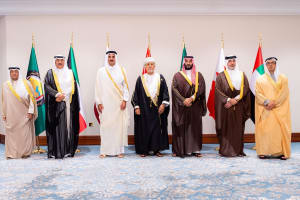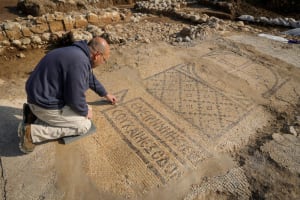Iranian president vows to resist international sanctions, Tehran claims successful test of 'most advanced missile yet'

Iranian President Masoud Pezeshkian vowed on Saturday that the ayatollah regime would resist international sanctions imposed on the country due to Tehran’s violations of the 2015 nuclear agreement.
“With the snapback they block the path, but it is human minds that open it,” Pezeshkian told Iranian state media.
“They cannot stop us. They can attack our nuclear facilities in Natanz or Fordo, but they do not understand that the same people who built them will rebuild them,” he stated.
France, Germany and the United Kingdom, collectively known as the E3 powers, decided in late August to reinstate sanctions on Iran following the collapse in the nuclear talks. The three European countries stressed at the time in a joint letter that they remain determined to prevent Tehran from acquiring nuclear weapons.
"The E3 are committed to using every diplomatic tool available to ensure Iran never develops a nuclear weapon. That includes our decision to trigger the 'snapback' mechanism today through this notification," the letter stated.
Unless a last-minute deal is agreed upon, the snapback sanctions are expected to take effect on Sept. 27. If implemented, the sanctions will likely enforce arms embargoes, ban uranium enrichment and missile development. In addition, it would likely also freeze Iranian assets and impose travel restrictions on Iranian officials.
Russia, which has developed close ties with the Iranian regime, condemned the European move as “provocative and illegal.” Moscow opposed the Israeli and U.S. strikes on Iranian nuclear assets in June but did not offer any concrete assistance to Tehran.
Meanwhile, the Iranian parliamentarian Mohsen Zanganeh claimed that “two nights ago we tested one of the most advanced missiles in the country, which had not been tested until now, and it succeeded.” The Iranian lawmaker added that “even under these circumstances, we are conducting a security test with an intercontinental missile.”
Iranian social media accounts shared images on Thursday that showed bright streaks in the sky. One social media channel described the event as “a successful test of an advanced missile from Semnan.”
However, there are currently no independent sources that can confirm the alleged Iranian missile test.
The Islamic Republic of Iran has a history of boasting about military achievements with mixed results.
In late March, the elite Islamic Revolutionary Guard Corps (IRGC) unveiled a propaganda video of what was described as a new underground “missile city.” The video showed Iran’s Chief of Staff of the Armed Forces Mohammad Bagheri and IRGC Aerospace Forces Commander Amir Ali Hajizadeh inspecting large underground facilities filled with missiles. Bagheri and Hajizadeh were among more than 20 top Iranian military leaders that were eliminated during Israel’s Operation Rising Lion in June.
Earlier this month, Iran’s Foreign Minister Abbas Araghchi claimed that Tehran’s stockpile of enriched uranium was “under rubble” at the nuclear sites that were bombed by Israel and the U.S. in June. Without providing any evidence, Araghchi argued that “all of our material is… under the rubble of the bombed facilities.”
Prior to the June war, Iran reportedly had some 400 kg (about 882 pounds) of close to military level enriched uranium. U.S. President Donald Trump announced at the time that the uranium was inside the nuclear facilities at the time of the bombings. However, some diplomatic sources have speculated that the uranium stockpile was potentially moved from the facilities before they were bombed.

The All Israel News Staff is a team of journalists in Israel.
You might also like to read this:

















